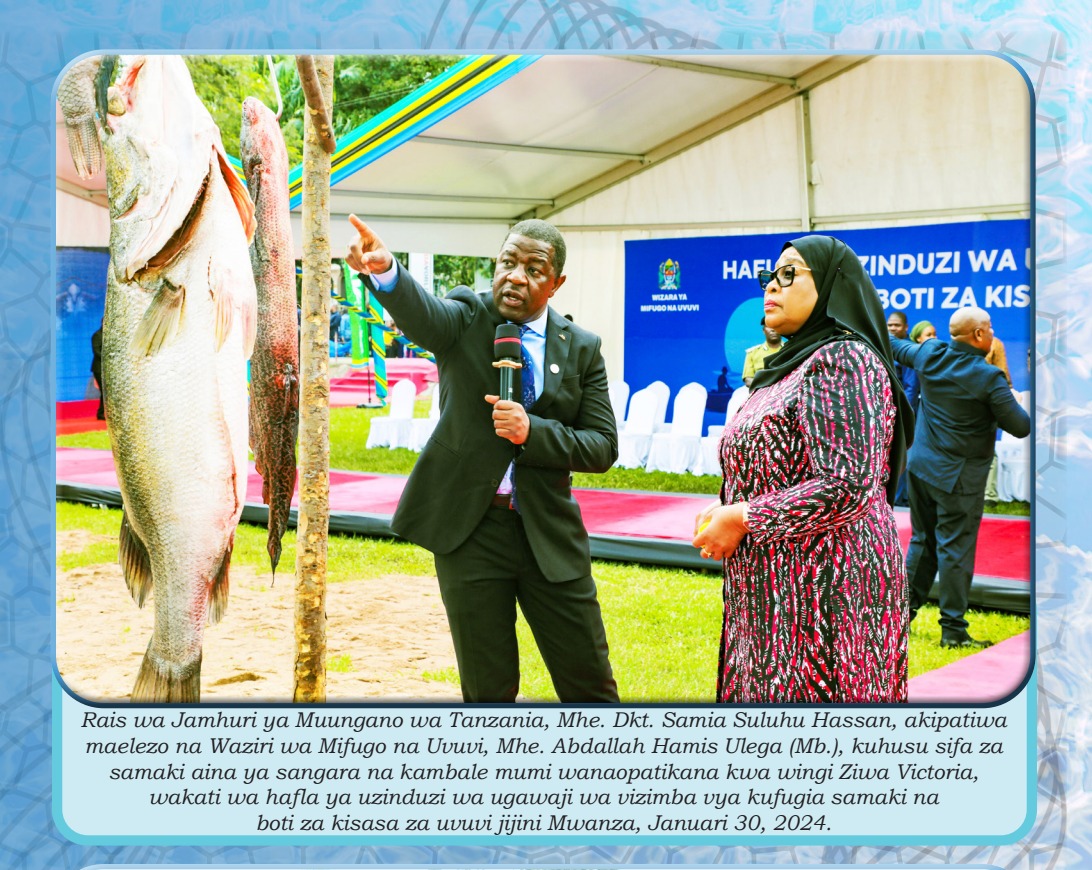In 2024/5 budget speech delivered by Hon. Abdallah Hamis Ulega (MP), Minister of Livestock and Fisheries,, the promotion of fish farming was highlighted as a key priority for the government. Fish farming, or aquaculture, offers a sustainable alternative to traditional fishing and has the potential to significantly increase fish production and reduce pressure on natural fish stocks. The budget outlines several initiatives aimed at promoting and supporting fish farming across the country.
One of the major initiatives highlighted in the budget is the construction of demonstration farms. These farms serve as training and innovation hubs where fish farmers can learn about best practices in fish farming. The demonstration farms showcase modern aquaculture techniques, including the use of advanced feeds, disease management strategies, and efficient water use practices. By providing hands-on training and practical experience, the government aims to improve the skills and knowledge of fish farmers, thereby enhancing their productivity and sustainability.
The budget also emphasizes the importance of providing financial support to fish farmers. Concessional loans are being made available to fish farmers for the purchase of equipment and inputs such as fish cages, feeds, and water quality monitoring tools. These loans are designed to make it easier for farmers to invest in essential resources and expand their operations. By providing access to affordable credit, the government aims to reduce the financial barriers that often hinder the growth of small-scale fish farming enterprises.
The distribution of fish cages is another significant step mentioned in the budget. In the fiscal year 2023/2024, the government plans to distribute 270 fish cages to small-scale fish farmers. These cages are designed to enhance fish farming efficiency by providing a controlled environment for fish growth. The use of fish cages allows for better management of feeding, disease control, and harvesting, leading to higher yields and better quality fish. By supporting small-scale fish farmers with the necessary infrastructure, the government aims to promote inclusive growth and improve livelihoods.
The budget speech by Hon. Abdallah Hamis Ulega (MP) also highlighted the importance of improving market access for fish products. The government is working to establish new market linkages and develop export markets for Tanzanian fish products. This involves the rehabilitation of fish markets, the installation of cold storage units, and the establishment of quality control laboratories. By improving market infrastructure and ensuring that fish products meet international standards, the government aims to enhance the competitiveness of Tanzanian fish products in both domestic and international markets.
Research and development are critical components of the government’s strategy to promote fish farming. The budget includes initiatives to invest in research on fish breeding, nutrition, and disease management. Collaboration with academic institutions and international organizations is being encouraged to leverage global expertise and innovation. By advancing research and development, the government aims to develop new technologies and practices that can enhance the productivity and sustainability of fish farming.
Public awareness and education are also vital for the success of fish farming initiatives. The budget includes initiatives to raise awareness about the benefits of fish farming and to educate farmers on best practices. This involves the dissemination of information through various channels, including workshops, seminars, and media campaigns. By increasing awareness and knowledge, the government aims to encourage more farmers to engage in fish farming and adopt sustainable practices.
The promotion of fish farming is expected to have significant economic and social benefits. Fish farming provides a reliable source of protein and essential nutrients, contributing to food security and improving the nutritional status of the population. It also offers opportunities for income generation and employment, particularly in rural areas where alternative livelihood options may be limited. By supporting fish farming, the government aims to enhance the livelihoods of fishing communities and contribute to the overall economic growth and development of Tanzania.
In conclusion, the promotion of fish farming outlined in the budget speech by Hon. Abdallah Hamis Ulega (MP) reflects the government’s commitment to fostering a sustainable and productive aquaculture sector. Through the construction of demonstration farms, provision of financial support, distribution of fish cages, improvement of market access, investment in research and development, and public awareness initiatives, the government is taking comprehensive steps to promote fish farming. These initiatives are expected to have a significant positive impact on the livelihoods of fish farmers and contribute to the overall food security and economic growth of Tanzania.
